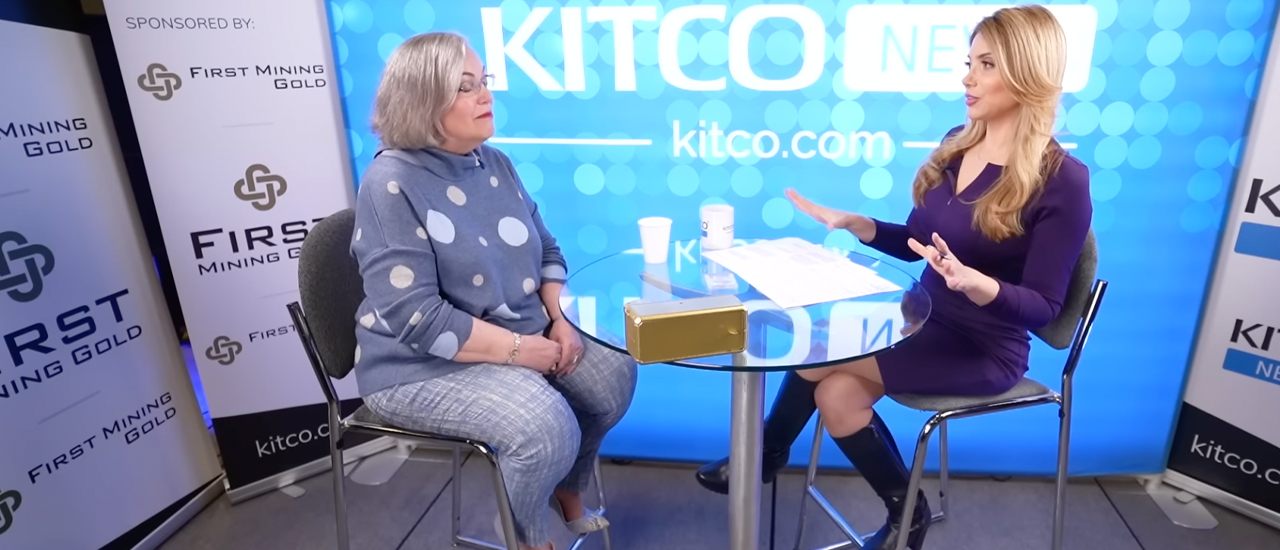
According to Lynette Zang, chief market analyst at ITM Trading, U.S. banks have the legal authority to confiscate people’s funds due to legislation passed by Congress. In a recent interview, Zang discussed how the purchasing power of the U.S. dollar has dwindled to “roughly three cents,” her belief that central bank digital currencies (CBDCs) will reinforce a “surveillance economy,” and the unalterable nature of the World Economic Forum’s proposal, known as the Great Reset.
The Consequences of Bank ‘Bail-Ins,’ CBDCs, and the Great Reset
In a recently published video interview, Lynette Zang, the chief market analyst at ITM Trading, sat down with Michelle Makori, lead anchor and editor-in-chief at Kitco News. Zang discussed how the U.S. dollar and most major fiat currencies are near their end.

“People don’t realize that everything has a life cycle,” Zang told Makori. “I’m at a different point in my life at 68 than my granddaughter who is about to turn eight. Currencies are no different. There are recognizable patterns that we can see all along the way,” Zang emphasized. The analyst continued:
But there’s not a doubt in my mind … I mean, first of all, there’s roughly three cents left of the [original] dollar’s worth of purchasing power … So, what happens when you reach zero? You have to go negative, and they take your principal.
Zang also informed the host that the Dodd-Frank legislation transforms depositors into “unsecured creditors.” She emphasized that the laws enable financial institutions to easily convert deposits into equity. Instead of “bailouts,” Zang predicts there will be “bail-ins,” where depositors’ savings are used to prevent a bank from collapsing.

“People have the assumption that when they make a deposit, it’s their money,” Zang stated. “But it’s not. When you make a deposit, legally, you’re lending your money to the bank. In 1995, they passed Regulation D, which legalized and allowed banks to move your deposits into sub-accounts that are in the bank’s name.”
Then they use that as collateral for loans, and you know, frankly, most of the revenue that banks generate now is trading revenue, according to the Office of the Comptroller of the Currency. So, that just allows them to reduce their reserves and use your money to gamble with. You don’t even realize it because it’s invisible.
During the interview, Zang forecasted that nearly everyone will experience a “bail-in” due to excessive money printing causing liquidity issues. The analyst pointed to cracks in the U.S. Treasury market, which is the foundation of the American economy. According to recent meetings, she stated that the Federal Deposit Insurance Corporation (FDIC) is aware of the potential for a significant problem in the U.S. financial system. “They’re laughing at us,” she said. “[They maintain] that the average retail clients don’t need to understand there’s really no money in the FDIC deposit insurance fund, and that they should expect to be bailed in.”
During the interview, Zang warned about the potential dangers of central bank digital currencies (CBDCs). She believes that these digital currencies will allow for easy tracking of a user’s funds and spending habits, as well as the ability to freeze those funds. Zang views CBDCs as part of the World Economic Forum’s proposed Great Reset. She argued that wealth never disappears, but merely shifts location, and if one does not own it, someone else does. “You may have nothing,” Zang said, “but I’m pretty sure you won’t be happy because you’ll be renting everything,” she added.
What do you think about the warnings raised by Lynette Zang? Share your thoughts in the comments below.
Image Credits: Shutterstock, Pixabay, Wiki Commons
Disclaimer: This article is for informational purposes only. It is not a direct offer or solicitation of an offer to buy or sell, or a recommendation or endorsement of any products, services, or companies. Bitcoin.com does not provide investment, tax, legal, or accounting advice. Neither the company nor the author is responsible, directly or indirectly, for any damage or loss caused or alleged to be caused by or in connection with the use of or reliance on any content, goods or services mentioned in this article.










